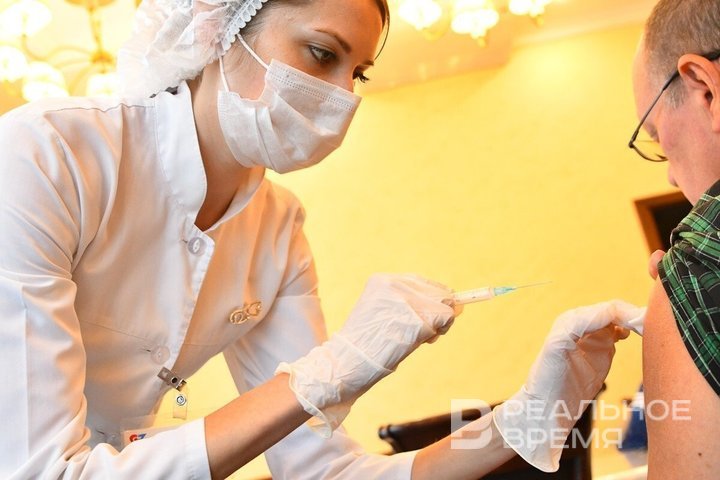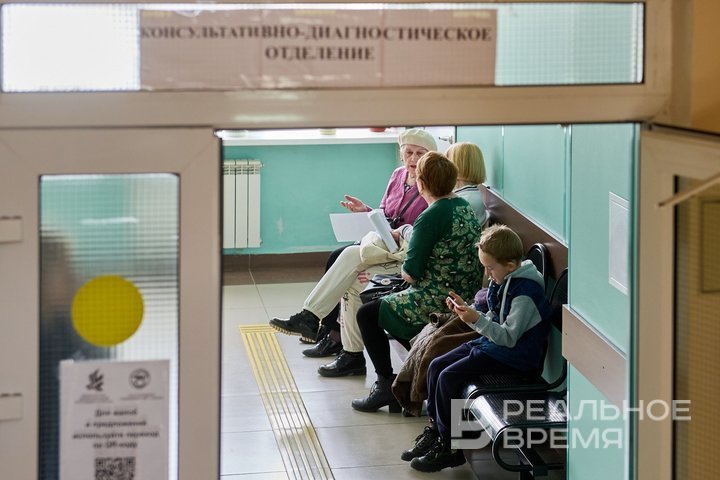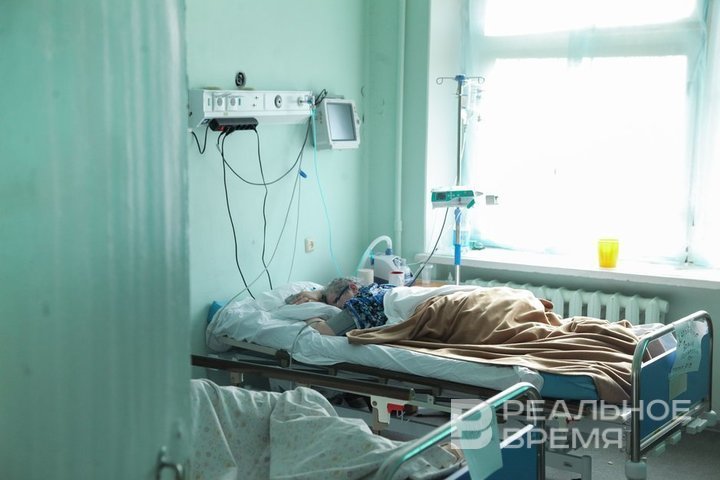Tatarstan doctors concerned about transition to clinical recommendations
How a new procedure for providing medical care threatens doctors and patients is an open question

A shortage of doctors in Tatarstan state clinics may increase due to the mandatory requirement to provide medical care based on clinical recommendations (CR), which comes into effect on 1 January 2025. Several Kazan doctors told Realnoe Vremya that they are ready to submit a letter of resignation voluntarilty if they do not receive clear instructions on how to treat patients by 31 December not to be held accountable to insurance companies and law enforcement officials for violations. Read about the opinions of doctors, patients and health care officials on real and imaginary problems associated with the innovation are in our report.
“My freedom may be at risk”
“I am an operating surgeon, I have more than 30 years of practice under my belt, and I understand very well that not only my reputation, but also my freedom may be at risk,” an employee of one of the large Kazan clinics told Realnoe Vremya commenting on a new requirement for doctors to treat patients based on clinical recommendations. According to him, he follows the standards and surgical tactics developed by specialists in his work while taking into account the peculiarities of the course of the disease in each patient:
“And both of us, me and the patient, are protected by clearly defined norms. I am protected from excessive demands and unfair claims, the patient — from the fact that he will, so to speak, be undertreated. If the standards are replaced by clinical recommendations, which provide for some variability, then both patients and supervisory authorities will inevitably have complaints about the doctor,” the doctor worries.

A district therapist at a Kazan polyclinic with 20 years of experience shares the same opinion. According to her, variability in recommendations is now allowed — tacitly. For example, she writes standard recommendations in a patient’s medical record based on the results of a standard set of tests and verbally gives out those that she considers more useful, taking into account the individual characteristics of the patient and her experience in treating such diseases. She provides out additional prescriptions and leaves the choice of treatment to the patient, explaining, of course, the possible consequences. But from 1 January, the doctor fears, she will have to choose — whether to send the patient for additional examinations according to the CR in the absence of equipment and other opportunities in a particular polyclinic or to limit herself to the set of tests available at the moment and ultimately receive an accusation from the patient that she “did not treat properly” and from the regulatory authorities and the insurance company, on the contrary, for prescribing something extra.
“Doctors in polyclinics are already trying to reduce their expenses from the Social Fund of Russia,” says Valentina N., a patient of Kazan Polyclinic No. 8. “For example, my friend who is on file with thyroid disease had her thyroid hormones tested within the compulsory medical insurance, and even though I am also on the list, the endocrinologist asked me: “Can you do a hormone test at your expense?” and when I said that I could, he quickly sent me to a private centre. I think that the “variability” of clinical recommendations being introduced will only lead to doctors trying to prescribe as few free examinations as possible.”
The head of the therapeutic department of one of Kazan’s polyclinics answering a question from Realnoe Vremya was cautious in his judgments — he said that he was not ready to draw conclusions and urged his subordinates not to rush into this. He added that he was still concerned about the lack of clear and understandable explanations from the Russian Ministry of Health Care on how exactly they would work from 1 January.
“The whole world works according to standards”

According to him, with the introduction of clinical recommendations, some nuances may arise in terms of the scope of research and the prescription of drugs. However, this does not mean that the patient will be prescribed something unnecessary or, conversely, deprived of what is necessary. The whole world works according to certain standards, clinical recommendations are used all over the world, and this is considered the norm, Akhmetov emphasised.
“Now the situation is sometimes presented as if doctors will be required to prescribe certain medications, otherwise they will face fines,” he explained. “Far from that, clinical recommendations are recommendations, nothing more, and it is the doctors who treat the patient, and they make the decisions.”
“There is hope that strict limits will not be established”

In his opinion, clinical guidelines do pose a certain threat, creating a reason for employees of regulatory and law enforcement agencies not to delve into the essence of the treatment of a particular patient, but simply compare doctors’ decisions with the CG and draw conclusions about violations.

In addition, Tuishev reminded, it is very important who developed the clinical guidelines and what for:
“If clinical guidelines are written for clinics in big cities, and they have to be followed in modest rural hospitals where there is no equipment and medicines specified in the CR the doctor will become a hostage of these recommendations. But there is still hope that such strict frameworks will not be established. The very word ‘recommendations’ suggests that they are not mandatory.”
Tuishev stressed that clinical recommendations themselves are certainly a useful thing, they are a kind of reliable “cheat sheet” for treating a patient, which is developed by highly qualified specialists. But given how they can be interpreted in different situations and by different people, they should be published and discussed in advance, to eliminate controversial issues, and not to implement them by force, to take our time.
“Because in recent years, law enforcement officers, the Federal Compulsory Medical Insurance Fund, and insurance companies have been interfering in the activities of medicine, and non-specialists or weak specialists are trying to judge the actions of doctors, evaluate the work of heart surgeons, surgeons, anaesthesiologists, in fact, to fine them,” Rostislav Tuishev reasons. “And it would also be good to calculate how much the implementation of these clinical recommendations will cost. Multiply them by the number of patients — what if it turns out that the healthcare budget will have to be multiplied by 10 times? Could this happen if the set of studies is large?”
How should doctors work from 1 January?
The problem of the transition to clinical recommendations was also addressed by the Chairperson of the Federation Council Valentina Matviyenko. She stated that the Russian Ministry of Health should conduct explanatory work with regional medical organizations. “You may not have problems, but doctors do,” she stressed addressing officials.
Earlier, State Duma deputies and the National Medical Chamber were against the transition to mandatory clinical guidelines. Deputy Director General for Medical Activities of the National Institute for Quality of Russia’s health care watchdog Oleg Shvabsky said at Medicine and Quality conference that clinical guidelines should contain local protocols that take into account the experience and capabilities of medical organizations in order to avoid “increased interest from law enforcement agencies.”
“We are ready to use clinical guidelines as recommendations, and protocols for treatment. Otherwise, any doctor who performs any actions in relation to a patient may be subject to prosecution. This does not happen anywhere in the world,” then member of the State Duma Committee on Health Protection, Academician of the Russian Academy of Sciences Alexander Rumyantsev told journalists.

As a result, a year ago, the Duma members postponed the “unripe” transition to mandatory clinical guidelines, the very definition of which consists of two mutually exclusive concepts (recommended from a logical point of view does not mean mandatory for implementation) for a year — until January 2025. But recently, the Russian Ministry of Health Care reported to journalists that the ministry had developed a draft procedure for the application of CR, which should “neutralise risks and streamline the approach to the use of clinical guidelines in the healthcare system. This draft, however, has also not been published — it is still being discussed and finalised.
Realnoe Vremya sent inquiries to the Ministry of Health of Tatarstan and the republican Office of Russia’s health care watchdog. The correspondent asked for clarification on how the actions of doctors will differ from 1 January 2025, whether the introduction of mandatory clinical recommendations will increase the reporting of medical institutions, how the responsibility will change responsibility of doctors and medical institutions for decisions made on the treatment of patients and how their activities will be monitored. The comment will be published upon receipt.
P.S. After the article was published, Realnoe Vremya received a letter from the head of the territorial body of Russia’s health care watchdog Vladislav Vinnichenko, which, instead of answering the questions posed, contained a recommendation to contact the Russian Ministry of Health Care.